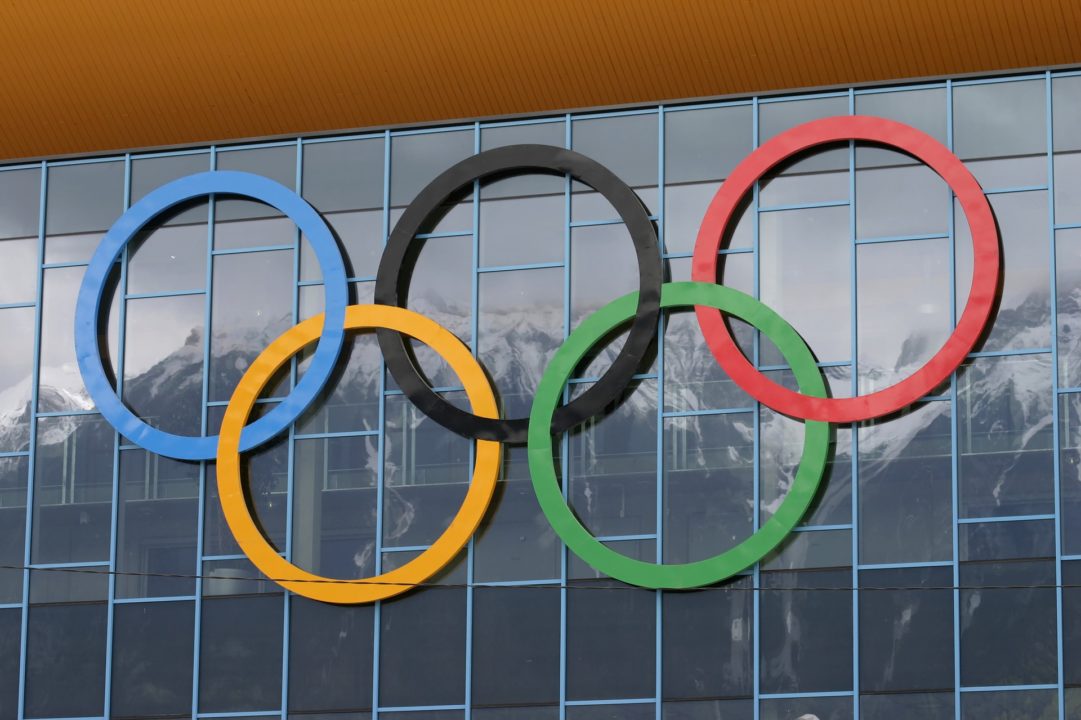The International Olympic Committee (IOC) announced Wednesday various rules and restrictions that will be put in place for the 2022 Winter Olympics in Beijing, highlighted by a return for spectators at the Games after they were absent this summer in Tokyo.
Fans will be back in the stands in Beijing, but only residents of mainland China will be eligible to purchase tickets.
“Tickets will be sold exclusively to spectators residing in China’s mainland, who meet the requirements of the COVID-19 countermeasures,” the IOC said in a release, adding that the specific countermeasures are still being determined.
“The IOC and IPC welcome the decision to allow for the sale of tickets to spectators residing in China’s mainland. This will facilitate the growth of winter sports in China by giving those spectators a first-hand Olympic and Paralympic experience of elite winter sports, as well as bringing a favorable atmosphere to the venues.
“However, all parties feel for the athletes and the spectators from around the world, knowing that the restriction on spectators from outside mainland China had to be put in place in order to ensure the safe holding of the Games this winter.”
This marks the second consecutive Olympics where international spectators won’t be allowed.
At the Tokyo 2020 Games this past summer, domestic spectators from Japan were initially going to be permitted in Olympic venues before the decision was ultimately made they would not be allowed after the country entered a state of emergency due to COVID-19.
Other announcements made by the IOC included the vaccination policy, the closed-loop management system to be implemented at the Games, and the daily testing requirements.
VACCINATION RULES & CLOSED-LOOP SYSTEM
After the United States Olympic and Paralympic Committee (USOPC) announced last week that all 2022 U.S. Olympians and Olympic hopefuls would be required to be vaccinated, the rules implemented for the Games certainly encourage athletes to do so, though it’s not a requirement.
Fully vaccinated athletes and Games participants will enter a “closed-loop management system” upon their arrival in Beijing, while those who are not fully vaccinated will be subjected to a 21-day quarantine.
In Tokyo, the IOC strongly encouraged athletes to get vaccinated, and many National Olympic Committees followed suit.
“This closed-loop management system will cover all Games-related areas, including arrival and departure, transport, accommodation, catering, competitions, and the Opening and Closing Ceremonies,” the IOC release says.
“Within the closed loop, participants will be allowed to move only between Games-related venues for training, competitions and work. A dedicated Games transport system will be put in place.”
The closed-loop management system will be in place from Jan. 23 until the end of the Paralympics.
DAILY TESTING
Just like they were at the Tokyo Games, all Games participants within the closed-loop system will be subjected to daily COVID-19 testing.
Further information regarding the implementation of the IOC’s policies and COVID-19 countermeasures will be detailed in the Playbooks, which will be released in late October and December.
The 2022 Winter Olympics in Beijing will take place February 4-20, and the Paralympics will follow March 4-13.

Hopefully nothing more coming out of Wuhan .. let’s get back to normal
Happy to see the Winter Olympics proceeding with spectators. Now that essentially everyone will be vaccinated it will be interesting to see whether or not there will be any masking mandates.
Lack of international spectators is going to mean vastly different atmosphere. Chinese generally don’t care about winter sports and don’t know a darn thing about them. That was always the risk and the goal of giving these Games to Beijing. Notice the sentence about first hand experience facilitating growth of winter sports in China. On Olympic forums recently I have seen extreme doubt from people who live in China. They say none of their friends are interested at all and generally wish the Games weren’t coming. Ad campaigns have accelerated but don’t seem to have had much impact so far.
You are very wrong. Figure skating is way more popular than swimming in China.
The Chinese will go nuts for any Chinese national with a chance at a medal even if they do not know the sport.
To be fair, I don’t think this is a phenomenon unique to China. Every country I’ve been in gets very excited about niche sports they’re good at come the Olympics. Fond memories of BBC having multiple replays of the clay shooting in 2012 (the Brit won).